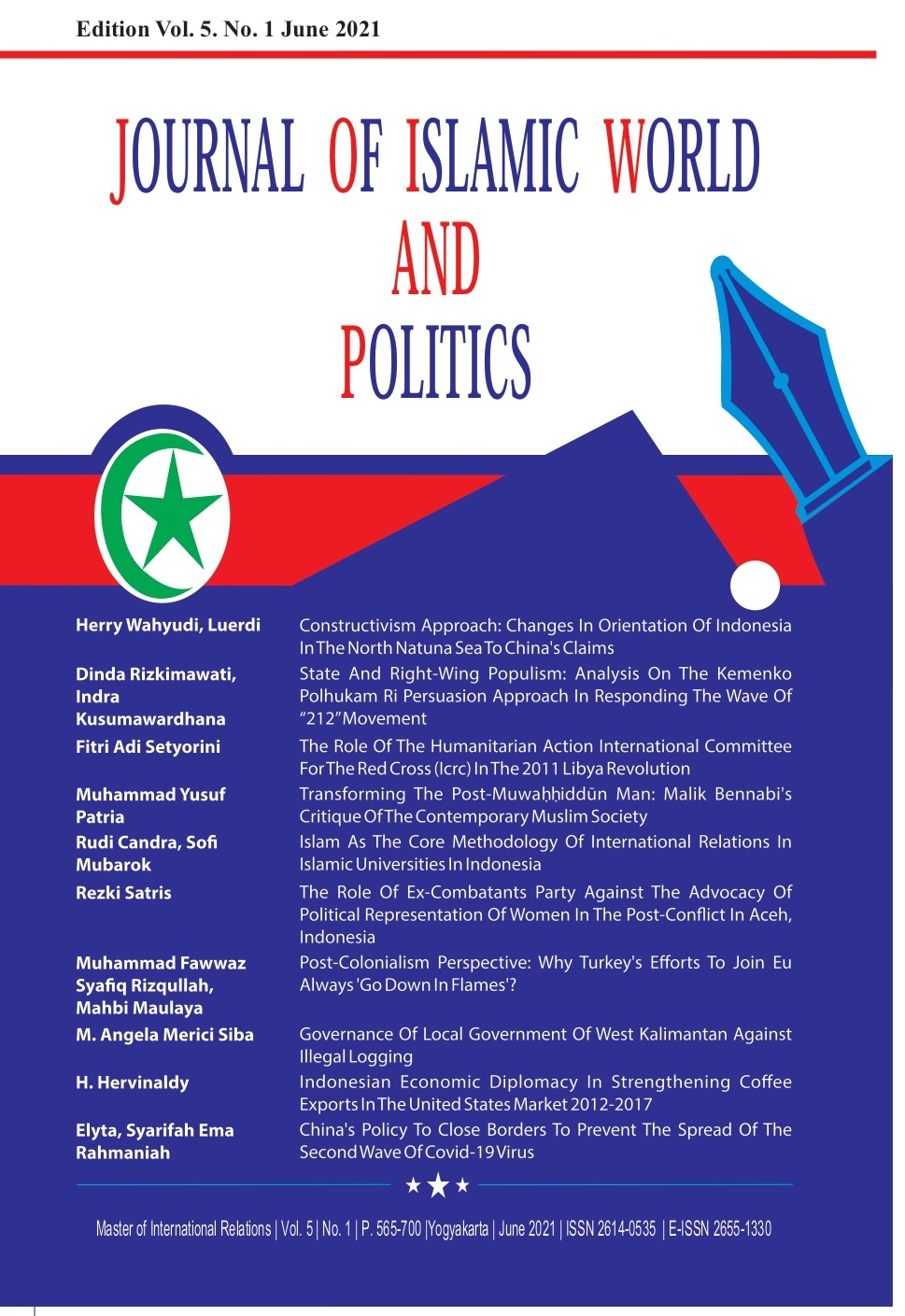TRANSFORMING THE POST-MUWAḤḤIDDŪN MAN: MALIK BENNABI’S CRITIQUE OF THE CONTEMPORARY MUSLIM SOCIETY
DOI:
https://doi.org/10.18196/jiwp.v5i1.11446Keywords:
Bennabi, Colonisability, Post-Muwaḥḥiddūn, Muslim SocietyAbstract
This article is aimed at discussing the critical analysis of a Muslim thinker, Malik Bennabi, of the state of contemporary Muslim society. This discussion uses a descriptive-analytic approach with Bennabi's works as the primary source and other supporting works as secondary sources. Bennabi's definition of a society, especially its origin, basic elements, and its stages, is described in detail as a basis for understanding Bennabi's thoughts. then, the article discusses Bennabi's analysis and criticism of the current state of Muslim society. For him, the root of all the problems experienced by Muslim society today is an internal weakness or what he calls "colonisability". This situation, according to him, creates vulnerable individuals and societies to be "colonized" again. Bennabi referred to these individuals in Muslim society as “Post-Muwaḥḥiddūn man”, as a sign that internal weaknesses began to emerge in Muslim society after the Muwaḥḥid dynasty. Based on his explanation, it can be concluded that the current Muslim society is disoriented and has lost its identity. The author also concludes that Bennabi's approach and analysis are able to describe the current state of Muslim society and the root of the problems it is experiencing.
Downloads
Published
Issue
Section
License
License
Journal of Islamic World and Politics is licensed under an Attribution-ShareAlike 4.0 International (CC BY-SA 4.0) license. You are free to:
- Share — copy and redistribute the material in any medium or format
- Adapt — remix, transform, and build upon the material for any purpose, even commercially. This license is acceptable for Free Cultural Works.
The licensor cannot revoke these freedoms as long as you follow the license terms.
- Attribution — You must give appropriate credit, provide a link to the license, and indicate if changes were made. You may do so in any reasonable manner, but not in any way that suggests the licensor endorses you or your use.
- ShareAlike — If you remix, transform, or build upon the material, you must distribute your contributions under the same license as the original.
- No additional restrictions — You may not apply legal terms or technological measures that legally restrict others from doing anything the license permits.
Copyright
Authors who publish with this journal agree to the following terms:
- Authors retain copyright and grant the journal right of first publication with the work simultaneously licensed under an Attribution-ShareAlike 4.0 International (CC BY-SA 4.0) that allows others to share the work with an acknowledgment of the work's authorship and initial publication in this journal.
- Authors are able to enter into separate, additional contractual arrangements for the non-exclusive distribution of the journal's published version of the work (e.g., post it to an institutional repository or publish it in a book), with an acknowledgment of its initial publication in this journal.
- Authors are permitted and encouraged to post their work online (e.g., in institutional repositories or on their website) prior to and during the submission process, as it can lead to productive exchanges, as well as earlier and greater citation of published work (See The Effect of Open Access).

